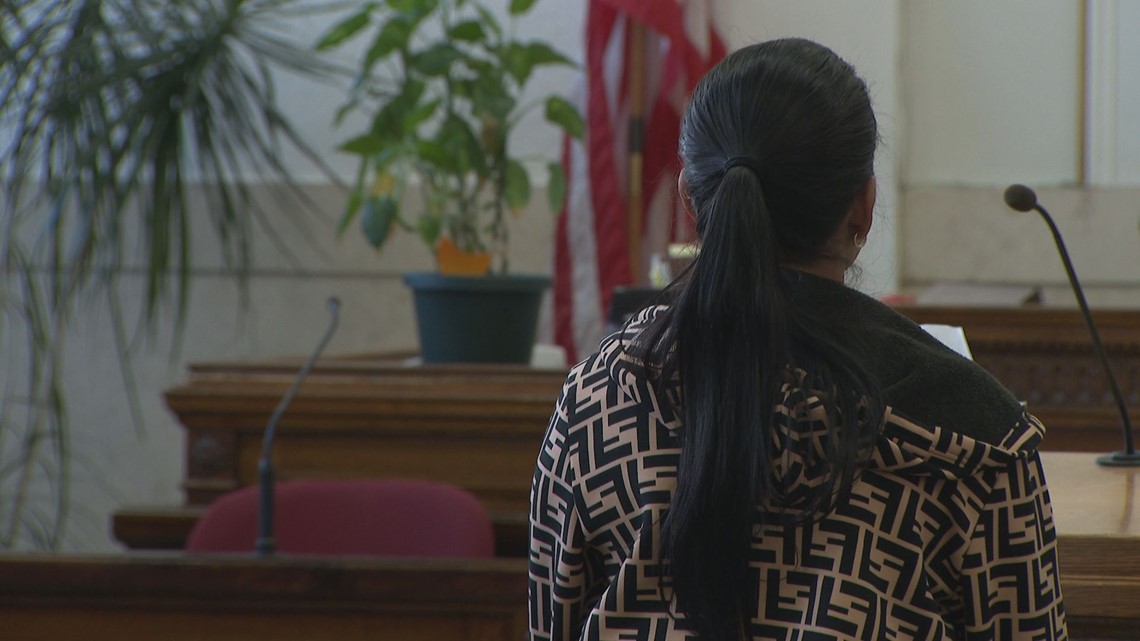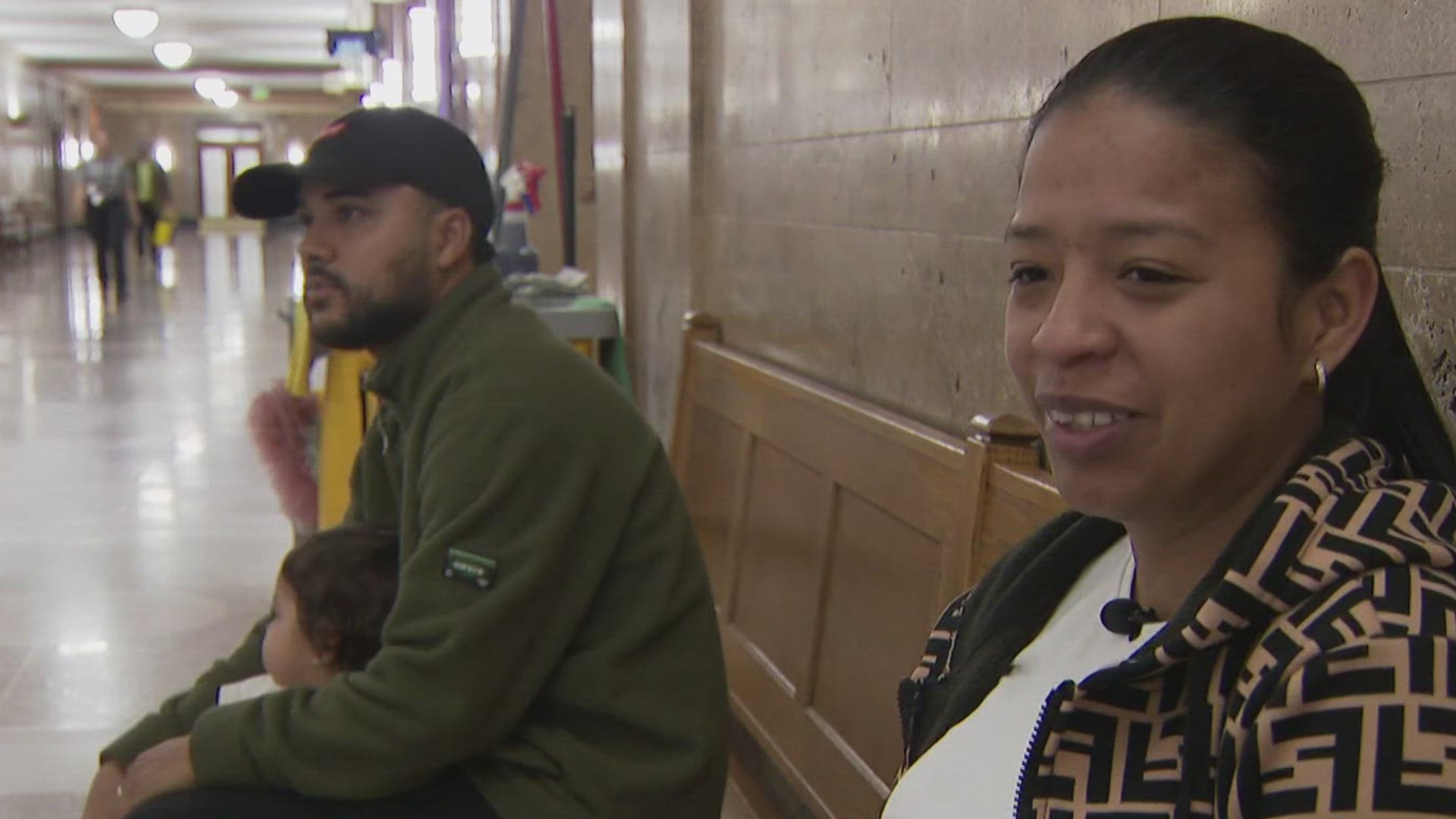DENVER — As migrants continue arriving in Denver, the metro is dealing with another housing crisis. Migrants are ending up on eviction dockets every day.
Daniela and Sabil Rodriguez signed a lease in November 2023 for an apartment in southeast Denver. At the time, a relative was also living in the apartment, so they weren't the only ones contributing to rent -- until he decided to go back to Texas. That left the entire rent cost on the couple, who have a daughter and are expecting another child on the way.
"Really stressful, really tough," Daniela Rodriguez said in her native Spanish language.
They got behind on their rent in January. The month, they say, was difficult to find jobs in due to the snow and weather. Both are still waiting on their work authorization. Without it, they haven't found steady work.
"If you still don’t have a work permit, you cannot afford rent," said Sabil Rodriguez, who said he thought he would have found something more permanent by now.
Through city resources, they received one-time financial aid to be placed in the apartment through a nonprofit.
"So, yes they help you with an apartment, but when it comes time to pay from your pocket, you don’t have a job," Sabil Rodriguez said.
By the end of February, they received a knock at the door. It was three staff members from the apartment complex.
"They told me to pay and that if I didn’t pay, they were going to send me to court," Daniela Rodriguez said. "I said, 'Is it possible to do a payment plan?' That I couldn’t pay everything but yes, in part. They didn’t do it. They didn’t want to. I simply told them, ‘OK.’"
Once they received a summons, the Rodriguezes went to court twice. Through the help of an English-speaking friend, the couple sought out resources for people facing eviction. They either didn't get responses or didn't qualify.
Within about a month, they ended up at the Denver City and County Building in front of a judge, deciding how many days they would have to get out of their apartment.


"Well, a little nervous, with a lot of anxiety, worry. But we’re here," Daniela Rodriguez said outside of the courtroom. "Today they will give us an answer about how many days we have left to be able to vacate."
Instead of actually being evicted, the couple settled on an agreement with the property owner's lawyers to vacate outside of the court, which the judge approved. It was decided they would have about seven days to vacate.
"It’s not that we don’t want to pay. We want to, but we can’t right now without a job," Daniela Rodriguez said.
"We want to continue moving forward, and we made friends," she said. "Well, right now, we are going to rent a small room [from them], and it is a little bit more economical for us to be there."
Their struggle is indicative of what eviction advocates warned may happen with a growing population without proper work authorization. Many are bracing for even more migrants to end up in court in a similar position.
"We are many families, migrants who are arriving and have the same problem," Daniela Rodriguez said. "But perhaps it is not because they don’t want to pay. Perhaps it is because of the need for work and waiting for permission, waiting on the government to help us in this process."
SUGGESTED VIDEOS: Migrants in Colorado

